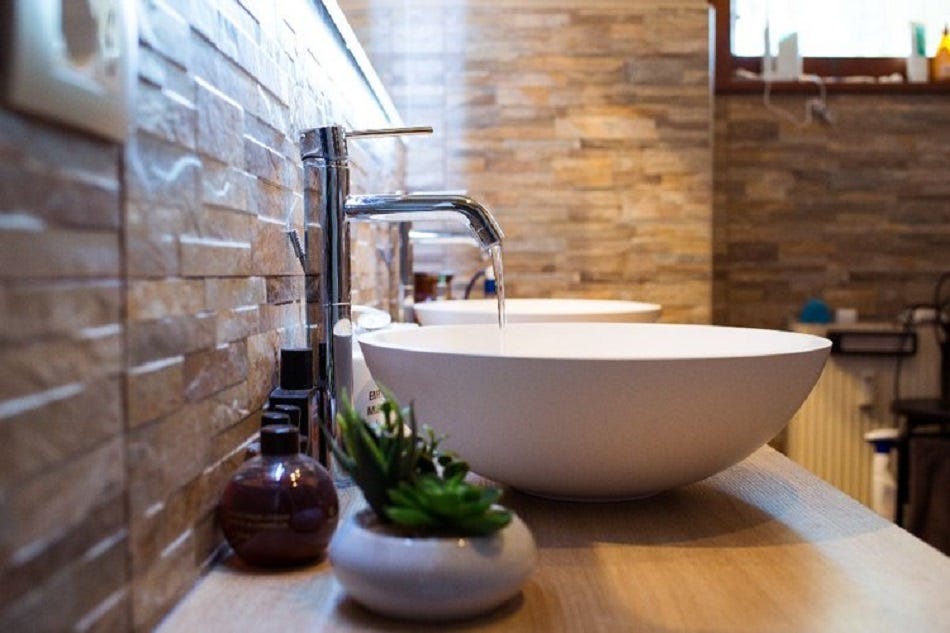Handy Bathroom Plumbing Guidelines for First-Time Home Buyers
Handy Bathroom Plumbing Guidelines for First-Time Home Buyers
Blog Article
Just how do you feel in regards to Smart Plumbing Tips for New Homeowners?

For new house owners, understanding and keeping bathroom plumbing can save both time and money by avoiding expensive issues down the line. Here are some important restroom plumbing tips to help you keep everything running smoothly.
Acquaint Yourself with the Key Shut-Off Shutoff
Knowing where the main water shut-off valve is located in your home is vital. This allows you to quickly shut off the supply of water in case of major leaks or during pipes emergencies, preventing considerable water damage.
On A Regular Basis Examine for Leakages
Tiny leaks can bring about big issues. Regularly inspect under sinks, around commodes, and near plumbing components for any indicators of leaks. Try to find wetness, little drips, or rust. Capturing and repairing leakages early can protect against much more major damages and conserve water.
Don't Overlook Slow Drains
If your sink or bath tub is draining gradually, it's usually an indication of an obstruction creating. Addressing this early can avoid a total clog. Make use of a bettor or a plumber's serpent to clean out debris. Avoid using chemical drainpipe cleansers as they can damage your pipes with time.
Know What Not to Flush
Bathrooms are not waste disposal unit. Prevent purging anything apart from bathroom tissue and human waste. Products like wipes, womanly hygiene products, and cotton bud ought to be gotten rid of in the trash to stop clogs and sewage system back-ups.
Install Strainers in Drains
Location strainers in your sink and bath tub drains to capture hair and various other debris before they enter your pipes system. Cleaning up the strainers consistently will assist avoid accumulation and maintain water flowing freely.
Preserve Your Hot Water Heater
Guarantee your hot water heater is readied to an appropriate temperature (generally around 120 degrees Fahrenheit) to stop hot and lower power use. Flush the container yearly to eliminate debris build-up, which can lower the efficiency and life-span of your heating system.
Update Your Components
If your home has older fixtures, take into consideration upgrading to a lot more effective models. Modern bathrooms, showerheads, and taps are designed to use much less water while providing great pressure, which can significantly lower your water costs and environmental footprint.
Beware with Do It Yourself Plumbing Repairs
While it's tempting to deal with all home repair work by yourself, beware with pipes. Some issues could call for expert competence, specifically if they include main water lines or sewage system repair work. Working with a professional can sometimes be a lot more affordable than DIY, specifically if it avoids further damage.
Get Ready For Winter
Secure your pipelines from cold throughout cold weather by insulating pipelines in unheated locations like basements, attic rooms, and garages. Throughout severe cool, let cold water drip from faucets offered by revealed pipelines to help avoid freezing.
Schedule Normal Upkeep
Think about organizing yearly assessments with an accredited plumbing professional. They can find issues that you may miss out on, such as concealed leaks or deterioration on pipes and fixtures. Routine upkeep helps extend the life of your pipes system and can prevent emergency situations.
Final thought
Comprehending and maintaining your home's washroom pipes can protect against numerous usual issues. By adhering to these essential ideas, you can guarantee your restroom stays useful and effective, saving you time and money in the long run.
Essential Plumbing Tips for Homeowners: Keep Your Pipes Flowing Smoothly
As a homeowner, understanding the basics of your plumbing system can save you time, money, and a lot of headaches. Plumbing issues can range from minor annoyances like dripping faucets to major problems like burst pipes that cause significant damage. This guide provides essential tips to help you maintain your plumbing system and tackle common issues.
Understanding Your Plumbing System
Supply System: Brings fresh water into your home from a municipal source or a well. Drain-Waste-Vent System: Removes wastewater and vents sewer gases outside. Fixtures and Appliances: Includes sinks, toilets, showers, dishwashers, and washing machines. Basic Maintenance Tips
Regular Inspections: Periodically check for leaks, corrosion, and other signs of wear and tear. Look under sinks, around toilets, and near water heaters. Know Your Main Shut-Off Valve: In case of a major leak, you’ll need to shut off the water quickly. Ensure everyone in your household knows where the main shut-off valve is located. Prevent Frozen Pipes: In cold climates, insulate exposed pipes and let faucets drip during extreme cold to prevent freezing. Use Strainers: Install strainers in sinks and tubs to catch hair, food particles, and other debris that can cause clogs. Common Plumbing Issues and Solutions
Clogged Drains:
Prevention: Avoid pouring grease down the drain and use drain screens to catch debris. DIY Fix: Use a plunger or a plumbing snake to clear minor clogs. For stubborn clogs, a mixture of baking soda and vinegar can sometimes help. Leaky Faucets:
Prevention: Replace washers and seals regularly. DIY Fix: Turn off the water supply, disassemble the faucet, and replace worn parts.

Request An Estimate Report this page